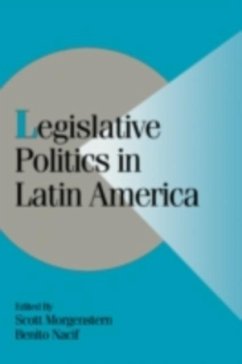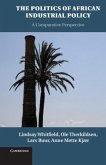This study, first published in 2002, explores legislative politics in Argentina, Brazil, Chile, and Mexico. Instead of beginning with an assumption that these legislatures are either rubber-stamps or obstructionist bodies, the chapters provide interesting data and a fresh analytical approach to describe and explain the role of these representative bodies in these consolidating democracies. For each country the book provides three chapters dedicated, in turn, to executive-legislative relations, the legislatures' organizational structure, and the policy process. The analytical focus of each section, however remains the same: the role of institutional factors (including the allocation of policy-making authority between the executive and legislative branches of government, the number of relevant parties in the legislature, and the structure of electoral incentives) in shaping the patterns of legislative behavior.
Dieser Download kann aus rechtlichen Gründen nur mit Rechnungsadresse in A, B, BG, CY, CZ, D, DK, EW, E, FIN, F, GR, HR, H, IRL, I, LT, L, LR, M, NL, PL, P, R, S, SLO, SK ausgeliefert werden.









